Diets Divide Us
How Diets Divide Us
In a momentous, seminal paper in the Proceedings of the National Academy of Science, colleagues at Oxford, University modeled the impact of human dietary patterns between now and 2050 on health outcomes, the climate, the environment, and the economy. The projected benefits of wholesome foods, mostly plants, in any sensible combination all but boggle the mind. The authors refer to millions of lives and trillions of dollars saved, along with key contributions to climate stabilization and environmental protection.
The authors go on to concede that getting there from here will require a correspondingly great reorientation in our food production systems around the globe, encompassing land use, crop selection, transportation, and the tendrils these all extend through our economy. But were we diffident about accommodating the imperatives and inconveniences of reality, the sun would still be revolving around a flat earth. We have revised the shape of our planet, and its place in the solar system; surely, we can update food production.
To do so will, however, require a global unity of purpose. That’s the very promise in it. The threat that might bring us all together is not from without, not the extraterrestrial of science fiction fantasy. Rather, it is from within, here and clear and omnipresent. It is climate change and crop failure; chronic disease and water shortages; food insecurity and rising seas; years lost from life, life lost from years, fortunes lost from GDPs, and species lost irrevocably to extinction. We are spending the inheritance of our progeny, and money is the least of it.
Were we to rally to the defense of common fundamentals of healthful, sustainable eating- we could fix all this.
In some other world, that would surely suffice. In some other world, that memo, such common peril and opportunity would bring us all together. But, alas, not in this world. In this world, diet is the stuff of constant discord and division.
The formula that most often lands a diet book onto the bestseller list is the promise of some new, grand epiphany regarding scapegoat, silver bullet, or both. The author has inevitably managed to figure out what all the rest of us are too benighted to see. There is the promise of effortless success.
But, of course, if any of this were true, there would be no need for new diet books, because the thousands that have been published already would have solved everyone’s problem. There is no dietary approach that hasn’t been tried, nothing new under the sun. Prioritize or exclude any given nutrient- it’s been done. Phase in this, phase out that- it’s been done. Combine foods in specific ways, never combine foods in specific ways, eat only at specific times or frequencies, never eat at specific times or frequencies- if you can conceive it, you can almost always find a diet book all about it.
The reality, then, is that eating well simply is what it is. It’s not one narrow, prescriptive formula; it’s a theme, a way wide enough to accommodate a world full of wonderful variations, and thus the opportunity for us to choose what we like best, to love the food that loves us back. But the theme is not negotiable, because it is buttressed by the veritable Himalayas of evidence. Because it is the one theme conducive to the luminous advancement of human and planetary health alike.
Diets divide us. They propagate confusion in place of clarity; controversy in place of consensus. They turn, as civil wars do, brother against brother- colleague against colleague. Diets, literally, divide families– as lone adults go on them, and leave even their own children behind.
Dieting might die, to make way for living and dining- or just plain eating- well. Diet might, thereby, unite us. It might unite us in a global effort to feed the hungry, and help the hefty slim down. It might unite us in an effort to eradicate up to 80% of the total global burden of chronic disease, and save the countless species we are marshaling toward the abyss. It might unite us in the stabilization of our climate, the preservation of our aquifers, the protection of our loved ones. It might unite us in the embellishment of the treasure we now share, and can hope to bequeath our children, in every relevant currency. And it might do so while offering a common, thematic way wide enough to accommodate our preferred variations.
But instead, we favor turf wars over common ground, fission over fusion, diatribe over dialogue and data alike. Where bridges built jointly might lead to new landscapes of limitless promise, bridges are afire.
So it is that dieting prevails, and divides us. That division is a recipe, at best, for many forms of indigestion. At worst, it is the reason the house we share will fall down upon us all.
-fin Dr. David L. Katz;www.davidkatzmd.com; author, Disease Proof; founder, True Health Initiative

